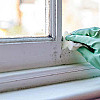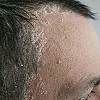Can an infection suddenly cause OCD?

ARCHIVED CONTENT: As a service to our readers, Harvard Health Publishing provides access to our library of archived content. Please note the date each article was posted or last reviewed. No content on this site, regardless of date, should ever be used as a substitute for direct medical advice from your doctor or other qualified clinician.
Consider this scenario: You are the parent of a six year-old child. He recently had strep throat, but is feeling better. One morning, his screaming wakes you up. You can't calm him down or completely follow what he is talking about, but it has something to do with germs and fear and danger. The morning is consumed with attempts to comfort him and try to understand what is going on. Getting to school isn't an option, which is highly unusual for him. Over the next few days, it gets worse. He washes his hands until they bleed, and refuses to eat because he says the food is contaminated.
It's possible that his strep infection triggered sudden-onset obsessive compulsive disorder (OCD). Quick treatment with antibiotics can reverse the problem.
Infectious disease and mental health experts call this pediatric autoimmune neuropsychiatric disorders associated with streptococcal infections (PANDAS for short). This controversial and seemingly rare diagnosis was given to children who abruptly developed obsessive compulsive disorder or tic disorders such as Tourette's syndrome after contracting infections caused by group A streptococcus bacteria, such as strep throat or scarlet fever.
The first cases of PANDAS were described in 1998. Since then, experts have recognized that other infectious organisms besides group A streptococcus bacteria can cause sudden-onset OCD or tics. In a paper published last week in the medical journal Pediatrics and Therapeutics, Dr. Susan Swedo and her colleagues detailed this new understanding and recommended creating a more comprehensive diagnosis: pediatric acute-onset neuropsychiatric syndrome (PANS). Dr. Swedo is Chief of the Pediatrics and Developmental Neuroscience Branch at the U.S. National Institute of Mental Health.
How can an infection do this?
What we think is happening to these children is that antibodies to the infectious agent cross the barrier that protects the brain from what's circulating in the bloodstream. Once inside the brain, the antibodies inflame a structure called the basal ganglia. The basal ganglia controls various functions, including fine motor movements (like handwriting), thinking, emotion, and learning routine behaviors or habits. It may also play a role in the development of OCD.
Recognizing PANS
The vast majority of children get through a strep or other infection without any long-term complications. Still, it's good to know the warning signs of PANS. They include sudden
- Onset of OCD (seemingly overnight preoccupation with germs, hand washing, counting, repeating, etc.)
- Challenges with eating, or refusing to eat
- Sensitivity to clothes, sound, light, or other stimuli
- Worsening of handwriting
- Bedwetting or change in urinary frequency
- Appearance of tics
- Easy distractibility, inability to focus or pay attention, or problems with memory
- Anxiety or panic attacks over things that were no big deal a few days ago, such as thunderstorms or bugs
- Inability to separate from a caregiver or to sleep alone
If your child suddenly shows any of these symptoms, call your doctor as soon as you can. Then contact the International OCD Foundation to find an OCD specialist in your area. Early treatment may prevent life-long mental illness.
Sounding a warning
With evidence mounting about the connection between infection and sudden-onset OCD, as the executive director of the International OCD Foundation I helped coordinate two new public service announcements to help raise awareness that OCD and tic disorders can be triggered by infections in children. For many of these children, quick treatment with antibiotics can be the key to reversing OCD, tics, and other symptoms.
At the International OCD Foundation, we have heard heart-wrenching stories of well-adjusted children who develop sudden onset OCD. I have seen chilling before and after videos. One clip, with a time stamp of August 10, 2010, shows a typical, happy go lucky kid. The next clip, dated August 12, 2010, shows a screaming, terrified child and bewildered parents.
Handwriting samples also tell a story. As the infection interferes with the activities of the basal ganglia, there's a deterioration of fine motor coordination, and thus handwriting. Here is an example of the change in writing and drawing skills in one youngster:
Jeff Szymanski, PhD, is the executive director of the International OCD Foundation in Boston, a clinical instructor in psychology at Harvard Medical School, and author of The Perfectionist's Handbook (Wiley, 2011).
Disclaimer:
As a service to our readers, Harvard Health Publishing provides access to our library of archived content. Please note the date of last review or update on all articles.
No content on this site, regardless of date, should ever be used as a substitute for direct medical advice from your doctor or other qualified clinician.












